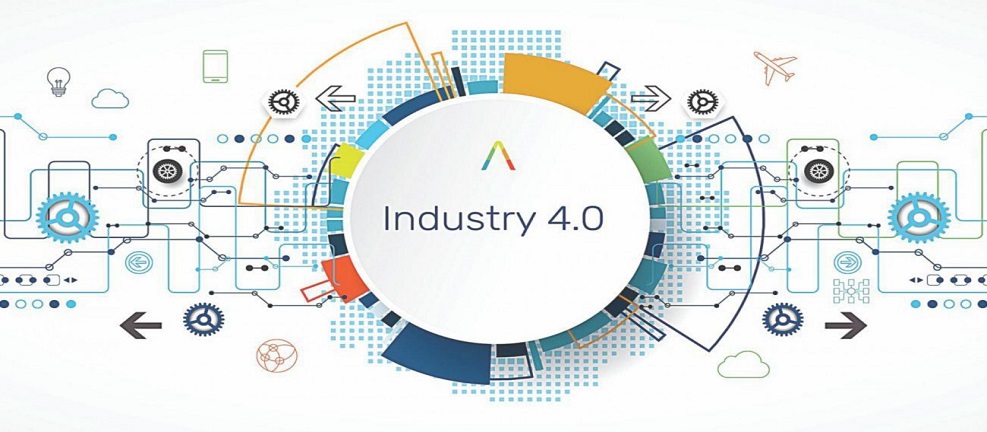Industry 4.0: How It Will Transform Life and Work for IT Leaders and Professionals

The Fourth Industrial Revolution, or Industry 4.0, is fundamentally reshaping life and work as we know it. According to over 800 experts from the World Economic Forum, cutting-edge technologies like Artificial Intelligence (AI), Machine Learning (ML), Blockchain, and the Internet of Things (IoT) are expected to become deeply integrated into daily life by 2025.
From connected clothing to automated pharmacies, the changes promised by Industry 4.0 are nothing short of revolutionary. But what do these transformations mean for IT leaders, businesses, and professionals? Let’s delve into the profound impact Industry 4.0 will have on our lives and work.
Before exploring Industry 4.0, it’s crucial to understand its predecessors:
First Industrial Revolution: Introduced mechanization through steam and water power, transforming agriculture and transportation.
Second Industrial Revolution: Brought electricity, mass production, and the assembly line, revolutionizing manufacturing.
Third Industrial Revolution: Leveraged electronics and IT to automate production, connecting people globally through the internet.
Enter Industry 4.0
Industry 4.0 builds on these foundations with the fusion of digital, physical, and biological domains. This revolution is characterized by unprecedented speed, scope, and complexity, creating opportunities and challenges in equal measure.
1. Life Becomes More Connected
Ubiquitous Connectivity: Smart devices and IoT will make everything interconnected, from homes to vehicles to healthcare systems.
Better Quality of Life: Wearables that monitor health in real-time, gene sequencing technologies that eliminate genetic diseases, and autonomous vehicles that make commuting stress-free are just a few examples.
2. Work Becomes More Agile
Automation of Labor-Intensive Tasks: Routine and repetitive jobs will be replaced by AI-powered automation, allowing workers to focus on strategic and creative pursuits.
Shift to Creative and Analytical Roles: Corporations will prioritize adaptability and innovation over rigid skill sets.
Freelance and Portfolio Careers: Professionals will increasingly work across multiple projects and companies, embracing a flexible, gig-based model.
For Businesses
Increased Efficiency: Automation minimizes errors and reduces production time.
Global Talent Access: Cloud-based platforms enable collaboration with professionals worldwide, transcending geographical barriers.
Enhanced Decision-Making: AI and data analytics provide actionable insights for better strategy formulation.
For Professionals
Location Independence: Work from anywhere becomes the norm.
Greater Job Satisfaction: A focus on meaningful work fosters motivation and happiness.
Continuous Learning Opportunities: Professionals must upskill continuously, leading to career growth.
One of the most transformative aspects of Industry 4.0 is the rise of the human cloud—a dynamic, global network of professionals who collaborate remotely on projects. Companies like AiDOOS are at the forefront of this shift, enabling seamless task management and outcome delivery through virtual platforms.
Key Features of the Human Cloud:
Task-Centric Models: Companies post tasks, and subject matter experts (SMEs) take ownership, ensuring high-quality outcomes.
Flexibility for Professionals: Freelancers and SMEs can work on multiple projects for different organizations simultaneously.
Scalability for Businesses: Companies can scale up or down effortlessly, paying only for work delivered.
AiDOOS’ Virtual Delivery Centers (VDCs) exemplify how businesses and professionals can thrive in Industry 4.0:
Centralized Task Management: Manage all tasks—development, maintenance, and support—on a single platform.
Access to Expertise: Leverage a global pool of SMEs across industries and technologies.
Cost Optimization: Pay per task, avoiding overheads and inefficiencies associated with traditional models.
Enhanced Collaboration: Integrated tools enable real-time communication and progress tracking.
Challenges
Skill Gaps: Adapting to new technologies requires constant upskilling.
Data Privacy Concerns: Interconnected systems raise questions about security and data governance.
Job Displacement: Automation will replace some roles, requiring workers to reskill and adapt.
Opportunities
Faster Innovation: Collaborative ecosystems drive innovation across industries.
Inclusive Workplaces: Remote work opens opportunities for underrepresented groups.
Sustainable Practices: Smart systems optimize resource usage, reducing environmental impact.
For IT Leaders and Businesses
Invest in Technology: Adopt AI, IoT, and Blockchain to stay competitive.
Focus on Training: Provide employees with resources to learn new skills.
Leverage Platforms like AiDOOS: Simplify task management and access global talent efficiently.
For Professionals
Continuous Learning: Embrace lifelong learning to remain relevant in a dynamic market.
Build a Portfolio Career: Work across multiple domains to diversify skills and income.
Adapt to Remote Work: Develop effective communication and collaboration skills for virtual environments.
Industry 4.0 is not just a technological revolution; it’s a transformation of how we live and work. For IT leaders, businesses, and professionals, embracing this revolution is essential to remain relevant and competitive.
AiDOOS is dedicated to empowering this transition, enabling businesses to harness the potential of the human cloud and professionals to enjoy greater flexibility and opportunities.
Call to Action
Ready to thrive in Industry 4.0? Sign up with AiDOOS and experience the future of work today.

For modern telecom enterprises, delivering exceptional QoS is no longer optional—it’s a brand differentiator and a strategic lever for growth. Static provisioning models won’t cut it in a world of hyper-dynamic data usage.